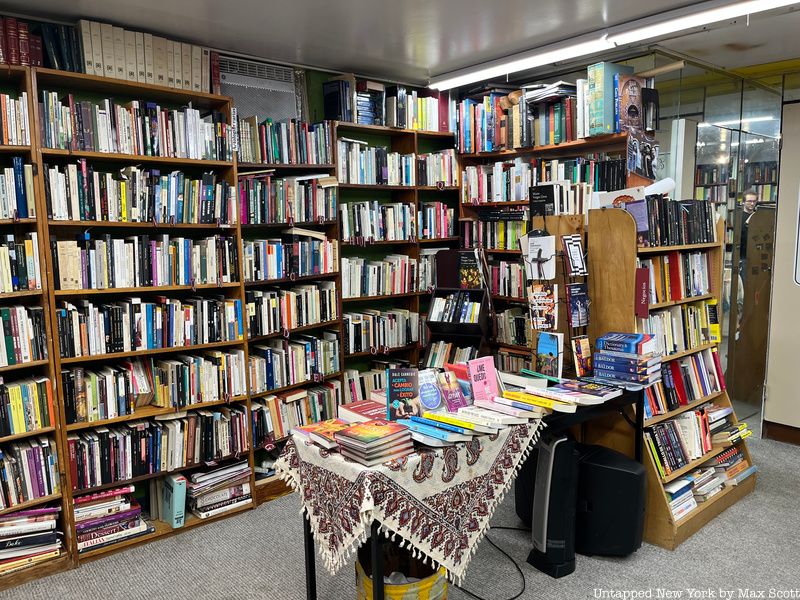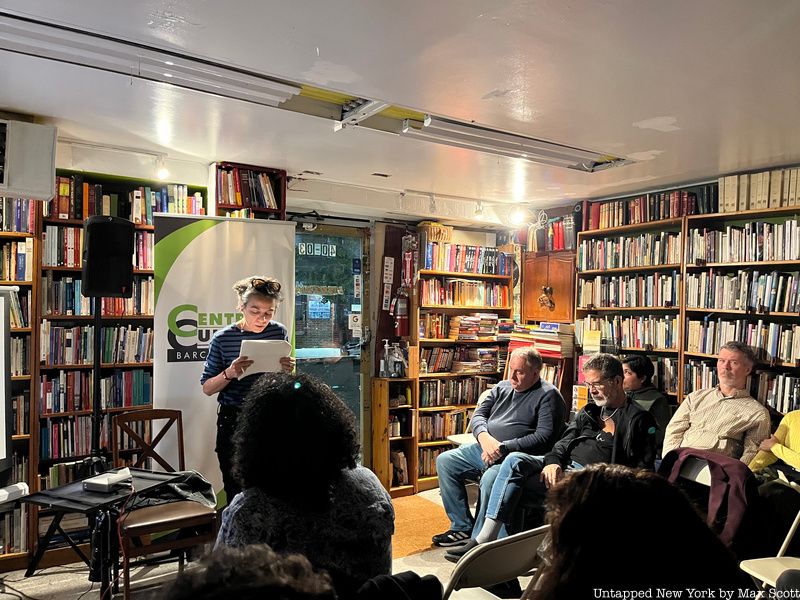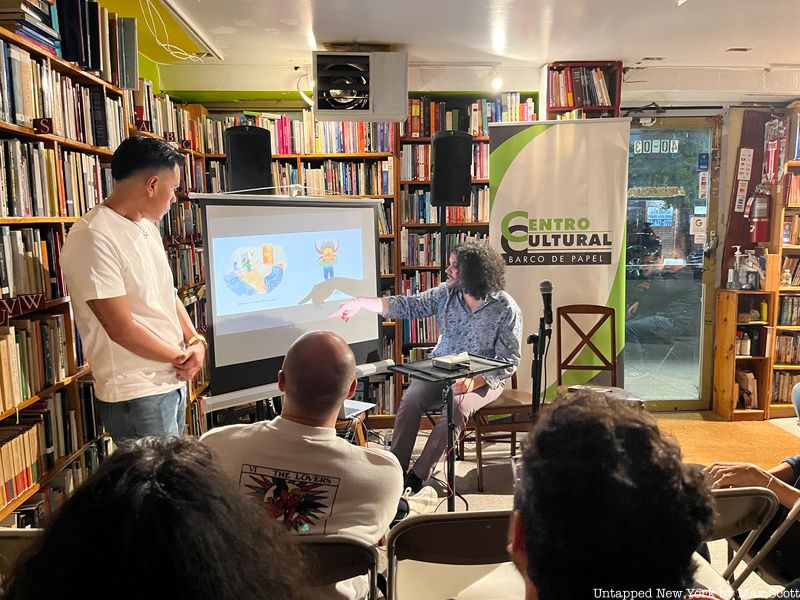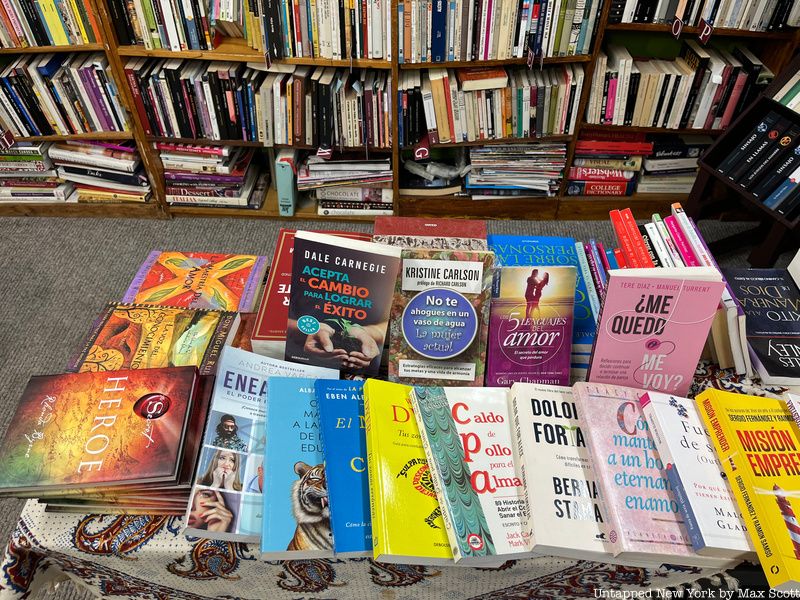

Located just off the corner of Roosevelt Avenue and 80th Street in Jackson Heights, Queens, sits a small bookstore called Librería Barco de Papel. When the Librería Barco de Papel was founded in 2003, it was one of four bookstores with a majority Spanish-language collection in New York, but today it is the city’s last Spanish-language bookstore.
The shop was founded by Ramón Caraballo, who emigrated from Cuba to New York in the 1990s. Alongside working odd jobs, like bagging candies at a factory in Long Island City, Caraballo soon began selling books on the street in Jackson Heights. He ran his book stand in the shadow of the 7 train on 82nd street for a number of years, slowly gaining success until he saved enough money to open a small storefront on 80th street. Twenty years later, the Librería Barco de Papel still sells Spanish-language books out of the same storefront, but it has grown into a much larger neighborhood cultural institution.

New York in the early 2000s was experiencing a growth in its immigrant population, especially from Latin America, and a large chunk of these Spanish-speaking immigrants were settling in the Queens neighborhoods of Jackson Heights and Corona. At the time, Ramón was selling books at his bookstand and noticed an increasing number of parents asking for Spanish-language books for their kids. So, when Ramón founded Barco de Papel, he initially opened it as a children’s bookstore. However, not long after the shop’s opening, Ramón, along with his partner Paula Ortiz, began using the space to host a children’s story hour called La Hora del Cuento. These events brought together kids and their parents to read stories about everything from Dia de los Muertos to Clifford the Big Red Dog. The story hours served as a welcoming space for new immigrants to both celebrate their culture and integrate into a new one.

As they continued to host La Hora del Cuento, the bookstore developed a small team of volunteers that helped with cleaning and organizing the store, ordering new books, and setting up events. With this increased capacity, the cultural events quickly expanded from La Hora del Cuento to include book and poetry readings, movie nights, and even short theatrical performances. These events became so well known that emerging authors across the Spanish-speaking world, from Spain to Mexico, were contacting Paula and Ramón to ask if they could read at Barco de Papel.
By the early 2010s, the bookstore had grown from a small shop specializing in Spanish language books for kids into an established neighborhood cultural institution that carried all types of books – new and old, rare anthologies, and the latest teen novels – and was frequently home to Spanish-language cultural events. In 2015, Paula and Ramón founded the nonprofit Centro Cultural Barco de Papel, which solidified the bookstore as a truly multi-use community space. During the pandemic, Paula and Ramón leaned even more into their connections with the community, and it was the community – the dozens of volunteers, regulars, and friends of the store – who enabled the store to survive the lockdown. Since then, Barco de Papel has been largely a community-building project, although it’s also still a fully functioning bookstore. Paula likes to call it a “project of love” and a “philanthropic” endeavor because of the community-oriented nature of the shop.

Through its nonprofit arm, the bookstore has received a grant to fund cultural work. This summer, Centro Cultural won a small grant from Flushing Town Hall to organize an event they are calling Trans-Arte, which will highlight the work of Latinx artists who are part of the Trans community in Queens. The event aims to bring together visual artists, writers, and photographers who will present their work at the bookstore.
More recently, the firm NHDM Architects completed a pro-bono architectural feasibility study for a remodeling of the bookstore’s building. The plan includes adding more light and windows and upgrading the AC system while maintaining the floor-to-ceiling bookshelves and interior open space that has been home to countless cultural and community events over the last 20 years.

After twenty years of operation as a brick-and-mortar bookstore, the Librería Barco de Papel plans to develop an online store to reach a much larger online market while maintaining their neighborhood community storefront. As the city’s last Spanish-language bookstore, the Librería Barco de Papel is a true New York City gem. It has outlived the city’s three other Spanish-language bookstores and grown into the literary and cultural home of two generations of New Yorkers.
Next, check out 10 Themed Independent Bookstores in NYC

